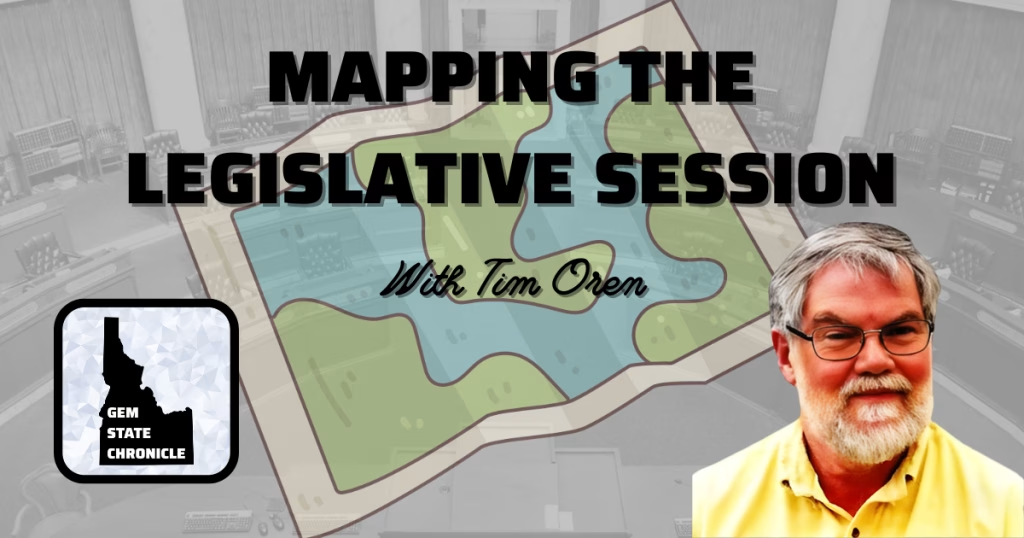In just a few short weeks, the newly-formed Idaho Legislature will convene for the 2025 session. Many potential laws will be on the docket, but passing a budget is the one thing our Legislature is constitutionally required to do. To that end, the Joint Finance-Appropriations Committee (JFAC) will send budgets for hundreds of state departments, divisions, and agencies to the House and Senate floor in January.
There will be a lot of public scrutiny on JFAC’s deliberations, especially with the new maintenance budget process firmly in place. Members of the joint committee will need to carefully work with state agencies to trim as much of the fat as possible.
As our state budget has skyrocketed over the past few years, one rationale I’ve heard from members of JFAC about why they are funding this or that program is because the Legislature told them to. While this can sound like a cop out, there is some truth to the claim. Over the years, the Legislature has passed laws creating this or that program, and then it’s up to JFAC to fund them going forward. However, it is still possible for the members of the budget committee to exercise discretion in what they choose to fund.
For example, in 1970 the Legislature created the Idaho Women’s Commission, with the mandate to “to encourage and stimulate women to increase their participation in and contributions, whether paid or unpaid.” In 2009, Sen. Joyce Broadsword of Sagle introduced legislation to eliminate the Commission, saying it had served its purpose. She received pushback, however, from colleagues:
House Appropriations Chairwoman Maxine Bell, R-Jerome, said she has seen many such attempts over the years. “It seemed like there were always those, especially the males on the committee, who did not see the value of funding the commission. And frankly, there are some women on there now who feel the same way.”
Broadsword failed to eliminate the Commission that year, but succeeded in defunding it. It had already been cut back to just $30,000 in appropriations back in 2006, and in 2009 JFAC voted to zero it out — proof that members of the budget committee can defund things if they really want to.
Kitty Kunz, the last executive director of the Women’s Commission, decried the attempt to eliminate her committee, saying its work was still important:
“We feel our purpose and value is still necessary,” she told state budget writers. “Have women in Idaho achieved equality? We only have to look at this body and the leadership in Idaho to see that that hasn’t happened.”
In 2016, Rep. Heather Scott introduced a bill to repeal the creation of the Commission, since it wasn’t being funded anyway, but it too failed to pass. Today, the Idaho Women’s Commission remains on the books but does not receive any government funding, and I can find no record of it having met or produced anything since 2009.
In 1987, the Legislature created the Idaho Commission on Hispanic Affairs (ICHA), with a broad mandate to promote Hispanic people and culture. Original appropriations for the ICHA in fiscal year 2024 totaled just over $500,000. While not a significant amount in the grand scheme of things, it is still a curious use of taxpayer dollars. No offense to the based Hispanic Idahoans out there, but why do we need a special commission for one particular ethnic group? The existence of the ICHA belies the idea of a melting pot and a color-blind society.
Margie Gonzalez has been the executive director for the IHCA for more than two decades. According to an article from a Twin Falls news station last October, Gonzalez and the IHCA reaches out to Hispanics in rural areas, hosting town halls and education events to connect citizens to their elected officials. Like Kitty Kunz and the Women’s Commission, Gonzalez believes the work of the IHCA is essential:
With an ever-growing Hispanic population, Gonzalez said the IHCA is needed in our state, “I believe like we’ve made a lot of progress, but we don’t see the equality amongst all of our communities in Idaho and being the largest and the fastest growing it’s important that we continue and are able to wrap our hands around on how fast the community is growing and what the challenges are and also what they are bringing to the state of Idaho.”
The issue at hand is not whether a Women’s Commission or Hispanic Commission has value, but whether they fulfill the fundamental purpose of government. Does government exist to serve the good of all, or should it allow individuals to create special carveouts for themselves and their associates? For over two decades, Idaho taxpayers have been funding Margie Gonzalez’s salary, which now exceeds $90,000 annually, likely accompanied by additional benefits. Beyond Hispanic outreach, the IHCA’s primary mission appears to be ensuring its own continued existence — the common trajectory for many government programs.
Again, I don’t mean to pick on the IHCA or Gonzalez specifically. This is just an easy example of government growing beyond its proper role. $30,000 here, $500,000 there, it quickly adds up. Idaho has scores of such programs and commissions that each might have seemed like a good idea at one time but now seem to only soak up tax dollars and lobby for their own budgets.
Over the past six years, appropriations to the general and dedicated funds have grown by an annual average of 8.8%, from $5.7 billion in fiscal year 2020 to $7.4 billion in fiscal year 2025. This growth has significantly contributed to the sharp increase in state budgets since 2020. Had the Legislature shown just a smidgen of fiscal restraint — say, by capping state budget increases to match the annual rate of inflation and population growth — taxpayers could have saved enough to offset most property taxes by now.
The iron law of compounding interest means that small cuts in ongoing expenses today can pay huge dividends in the future, but it requires an amount of fiscal discipline that is often hard to find in the Legislature.
Making meaningful cuts in the size and scope of government requires all hands to be on deck. JFAC must trim what it can, while the Legislature should continue to cut taxes — starve the beast — while also taking steps to eliminate agencies and commissions that do not fulfill the proper role of government.
There will be wailing and gnashing of teeth, of course. Attempting to eliminate the IHCA, for example, will bring charges of racism and bigotry, just as defunding the Women’s Commission brought charges of sexism. This is where our legislators need spines of steel to do what must be done. As constituents, we must do our part to encourage our representatives to do what is right.
By the end of this week we will know the makeup of each committee, and we can begin our work of holding them accountable to the taxpayers of Idaho and to the principles upon which they ran. Cutting government absolutely can be done, so let’s make it happen.
Gem State Chronicle is a reader-supported publication. To receive new posts and support my work, consider becoming a free or paid subscriber.
About Brian Almon
Brian Almon is the Editor of the Gem State Chronicle. He also serves as Chairman of the District 14 Republican Party and is a trustee of the Eagle Public Library Board. He lives with his wife and five children in Eagle.













